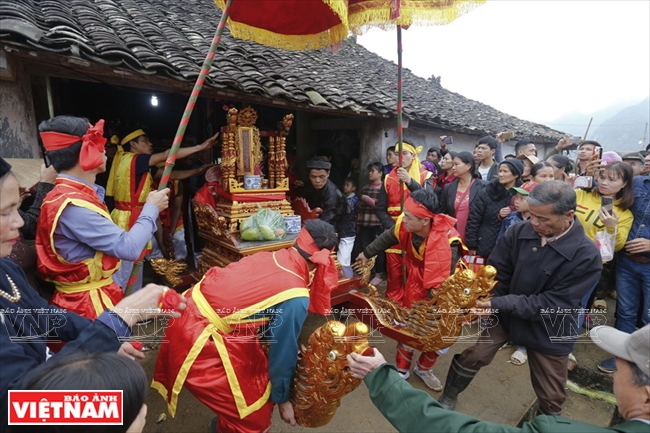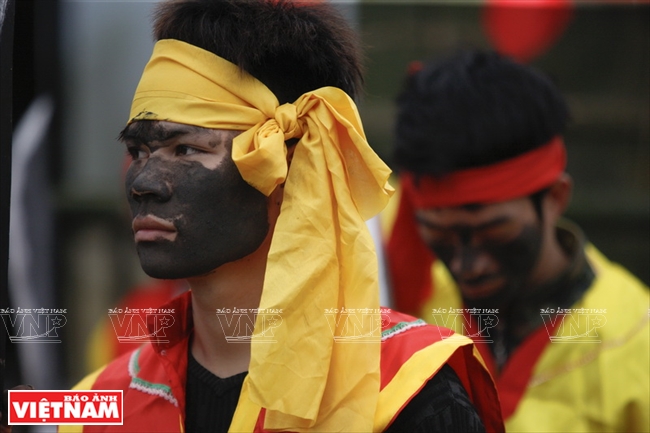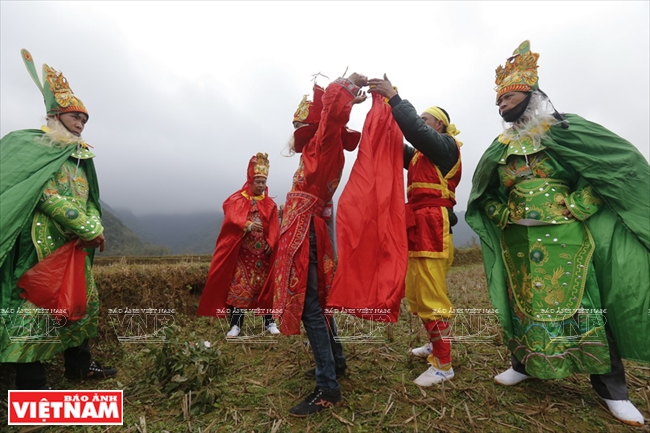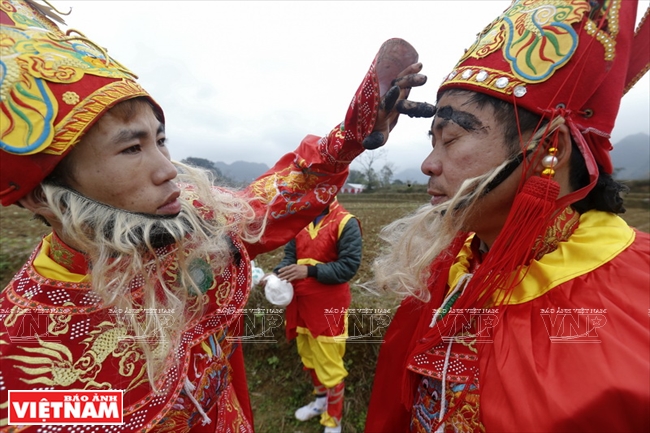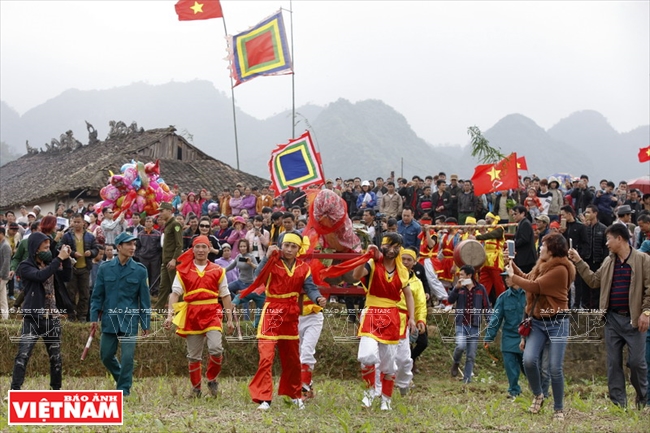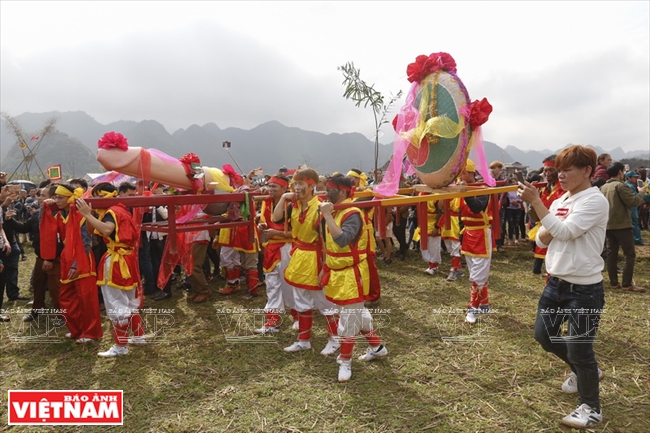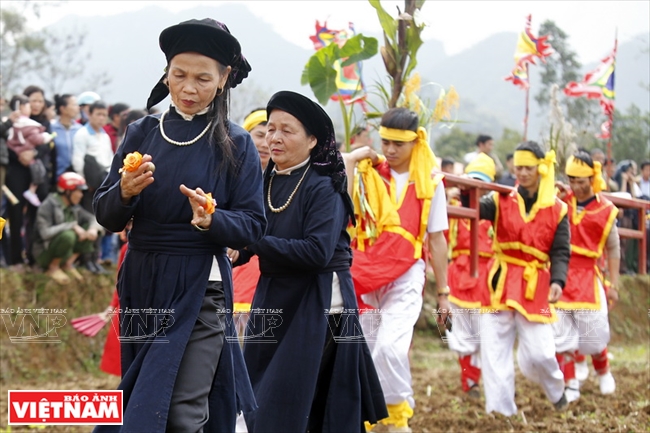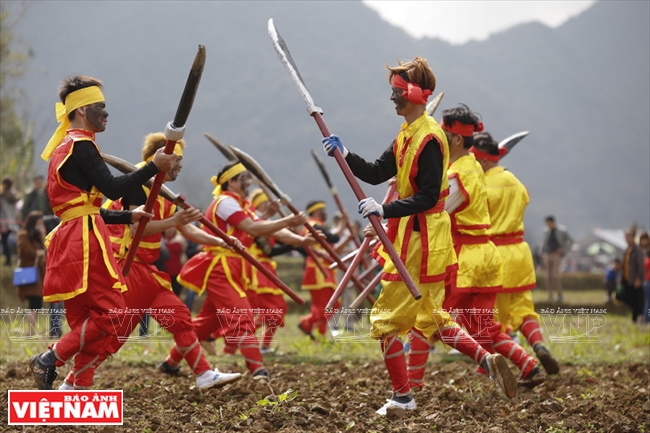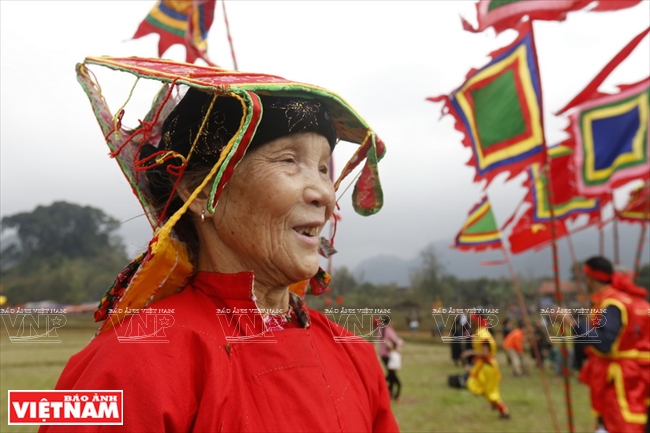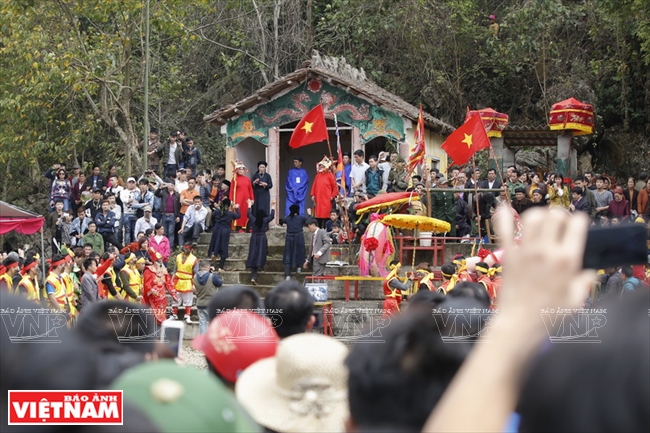All rituals of the festival are held in Tran Yen communal house, and Xa Vun shrine which honors Kings Mieu Tinh and Cao Quyet and deity Cao Son Quy Minh, a Tay national hero in the Ly reign in the 12th century.
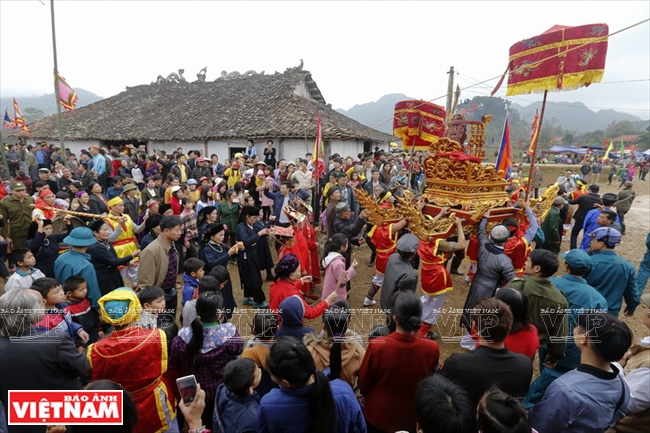
|
The festival includes two processions; one, to escort the god and the deities from Tran Yen communal house to Xa Vun shrine for worshiping. This procession is led by four men who represent a general and his three assistant generals. The other is to escort the sacred offerings to the shrine. The offerings include rice and taro, cycad and medical herbs, accompanied with linga and yoni, the symbols of fertility and harmony of heaven and earth, which imply bumper crops and peace for villagers.
The processions stop by noon when all the offerings are given to the gods at the shrine. In the afternoon, attendants to the festival join cultural activities, including folk games and folklore performances of the Tay./.
| Na Nhem in the Tay language means sooty face because the festival originated from a legend on fighting the enemy to protect the village. Young men at the festival have their faces smeared with soot to show the ugly appearance of the looting enemy. The disguise as looters is believed to drive away their evil spirits and spare them from harming the villagers. |

